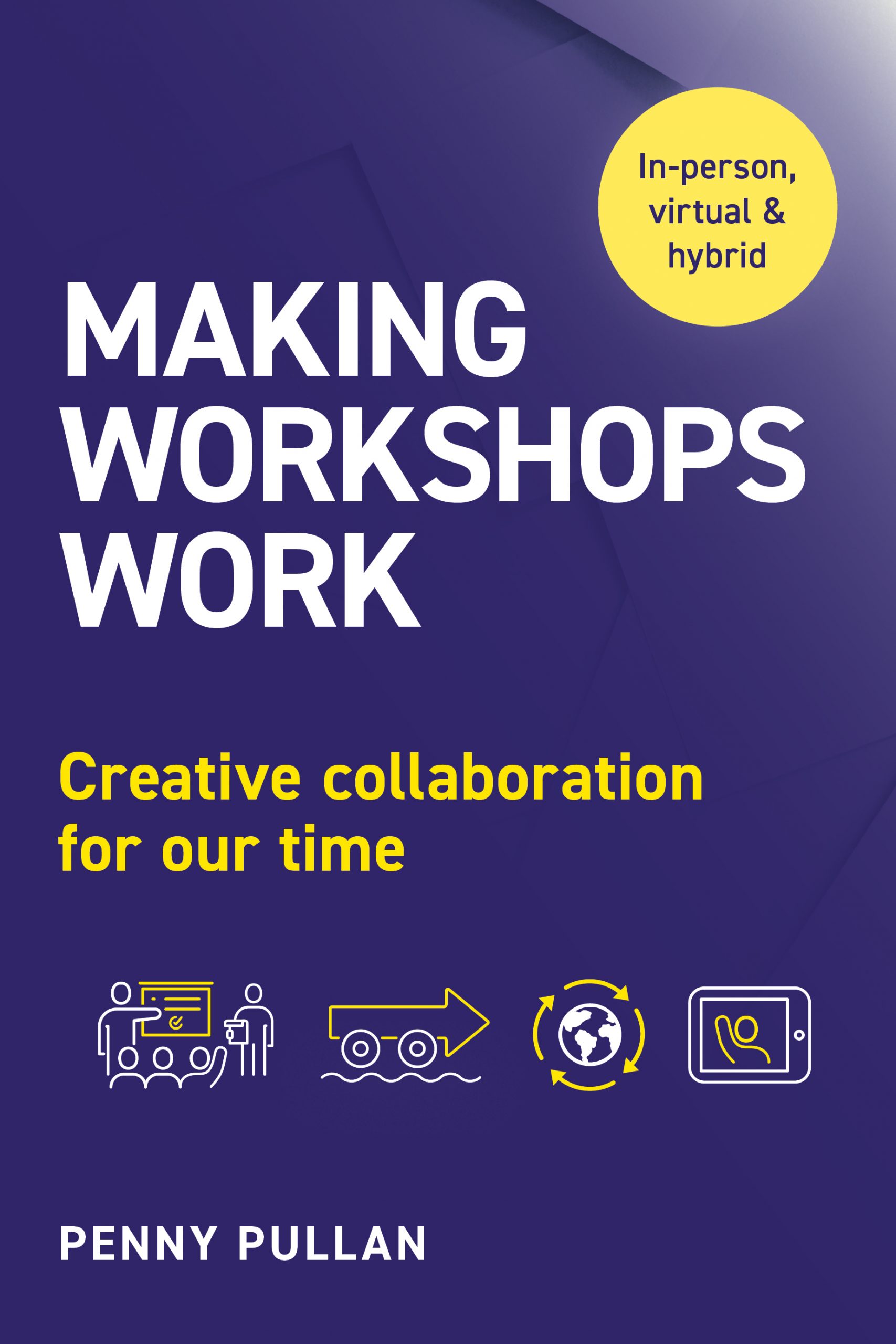In the last two years, we’ve seen huge numbers of teams learning how to rapidly use technology like Zoom and Teams to stay connected.
As our working lives continue to shift, we’re now in the next phase of learning how to deliver a great workshop experience in a hybrid environment where some people are in the office and the rest at home – where we need to work hard to create as much of a level playing field as possible.
In this very practical guide Penny Pullan shares her expertise and knowledge in workshop facilitation to help us all do this well, making sure workshops achieve their objectives, engage everyone involved and encourage collaboration.
She opens the book with a helpful guide to the book structure, summarising each chapter. This means you can easily find your way to the things that are going to be most useful to you, rather than needing to read the book from start to finish. Plus, a very handy, ‘Fast Answers to Urgent Questions’ chapter, is a valuable sign-posting tool if you need answers quickly and don’t have time to wade through every chapter.
Every chapter ends with a summary of what’s been covered, a list of questions for reflection to help embed learning, plus a list of further reading relevant to that specific chapter. I’m a big fan of this approach as it saves wading through what I find off-putting lists of resources typically found at the back of a book. Pullan also offers readers the opportunity to download an online colour workbook to guide them through the book, packed with templates, examples, mindmaps and checklists.
To help create clarity for any workshop (and, I’d argue, could be used in any meeting) Pullan introduces an invaluable tool – The Magic 6TM. , a template consisting of six statements, key to setting expectations from the outset. These six statements are:
We are here to… clarifies the purpose of your session
Today we will… where we share more detailed objectives (between four and six)
Our plan… this is the time plan for the session
Who’s doing what… this is where people are allocated to roles, including the workshop leader, timekeeper and action scribe (someone who collects the actions and key decisions that are made)
How we work together… how the group will work together to be most effective; for example, having only one person speaking at a time, being specific, muting if you’re in a noisy environment
What’s next… a reminder for people that there will be actions as outputs.
Unlike other books I’ve read on workshops and facilitation, where I’ve been taken straight into the ‘how’ of running a workshop, Pullan takes us back to basics, guiding us through the ‘why’ and ‘what’ of workshops, the role of the workshop leader and facilitation, before exploring human behaviour, neuroscience and psychology to build understanding of what makes people tick.
With those foundations in place, she moves to the more practical aspects of planning, choosing activities and running the workshop. The chapter around getting actions done is a real bonus – this is an area I’ve found often doesn’t get as much attention as it should in workshops, but as Pullan rightly says, “… if nothing happens as a result of your workshop, why bother putting all that effort into it?”
She wraps up the book with a focus on complications and how to tackle them – familiar challenges such as someone talking too much, technology nightmares and making sure we consider diversity.
Throughout, she punctuates each chapter with real-life examples and mini case studies to illustrate the messages and really bring it to life.
This practical, ‘how to’ read is focused on helping either workshop novices or seasoned facilitators to improve the workshop experience. She wants us to design workshops first and foremost for collaboration, to help people interact and engage (and with as few slides as possible). She helps to guide us in levelling up the playing field for remote and hybrid participants, encouraging us to think remote first and offering solutions to help with this – think about asking remote participants for feedback first, is just one of many examples.
Although more people are returning to offices, hybrid working is definitely here to stay and with it, hybrid workshops. Supporting collaboration and engagement between teams through effective workshops will be key if they are to meet their objectives.
Having this book to hand to either work through or dip into as you plan and deliver your workshops will help create a positive, engaging experience for your participants and make sure the time spent is as valuable as possible.
Published by Practical Inspiration Publishing
Jo Twiselton, Change leadership coach & consultant, founder of Twist Consultants







